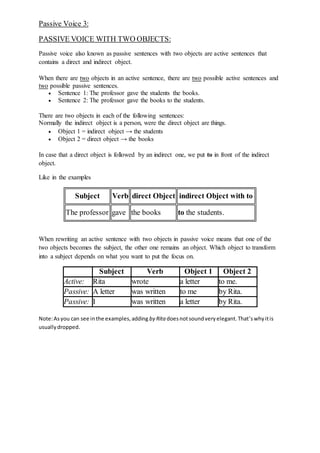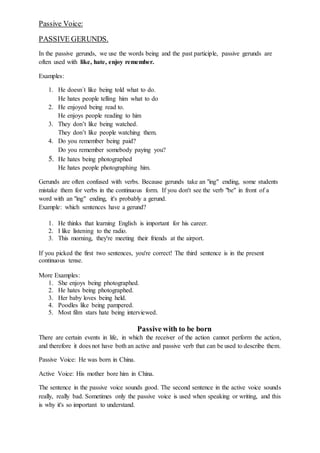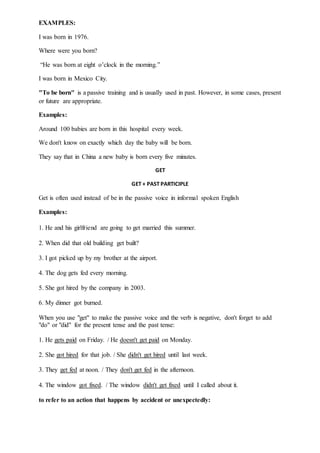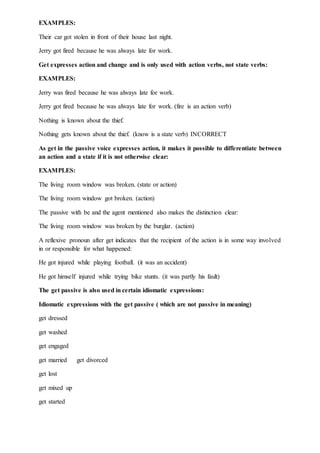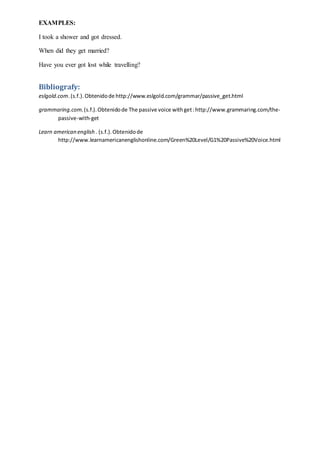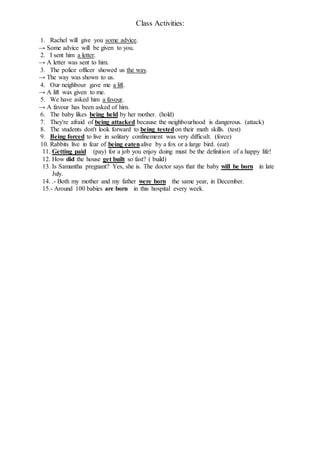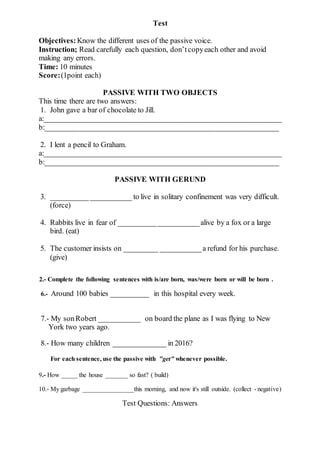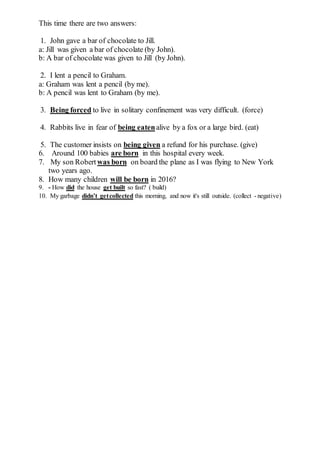The document discusses various uses of the passive voice in English, including with two objects, gerunds, the verb "to be born", and using "get" instead of "be". It provides examples for each case. Key uses covered include sentences with a direct and indirect object where either can become the subject in passive form. Gerunds ending in "-ing" but functioning as nouns rather than verbs are also discussed. Certain events like birth are usually expressed in the passive. Finally, "get" can replace "be" in informal passive constructions.
